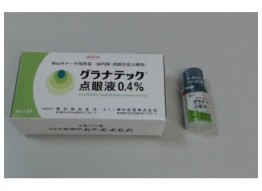What is Calsed (amrubicin) vial for cancer treatment?
Calsed injection are usually used to treat non-small cell lung cancer and small cell lung cancer. They help to inhibits DNA synthesis of cancer cells, to suppress proliferation of cancer cells and to reduce the size of cancer. Their active principle, amrubicin, is a third-generation lung cancer drug developed by by Nippon Kayaku Corporation and used in Japan since 2005.
Technically, ambrubicin belong to the group of anthracycline glycoside antibiotics. This group is known by strong activity against both solid tumours and haematological malignancies. Amrubicin is a derivative of 9-aminoanthracycline promoting inhibition of cell growth by stabilising protein-DNA complexes followed by double-stranded DNA breaks, which are mediated by the enzyme called topoisomerase II.
Amrubicin has antimitotic and cytotoxic activity through different mechanisms of action. Amrubicin has been shown to form complexes with DNA by intercalation between base pairs and to inhibit the activity of the enzyme topoisomerase II by stabilizing the DNA-topoisomerase II complex, which prevents the re-ligation part of the ligation-repeat polymerization reaction, which normally catalyzes topoisomerase II.
Active principles: Amrubicin hydrochloride 50 mg
Amount: 1 vial
Maker: Nippon Kayaku Co., Ltd., Tokyo, Japan
Indications: lung cancer
How to use
In general, this medicine is injected intravenously once a day for 3 consecutive days and then is discontinued for 3-4 weeks, then repeated by the same scheme several times. However, your doctor should prescribe the exact dosage according to your symptoms and effect of the medicine. The duration of the course of treatment (the number of repeats) and the dosage are to be prescribed by the doctor in charge.
Contraindications: do not use for the following categories of patients:
- patients with myelosuppression, interstitial pneumonia, pulmonary fibrosis or liver/renal disorder,
- patients with abnormal cardiac function or a history of it,
- patients who have been treated with anthracycline medicines such as doxorubicin or daunorubicin,
- patients who have infection or varicella (chickenpox),
- pregnant, possibly pregnant or breastfeeding women.
Important information
During the treatment, regular laboratory tests (blood tests, liver function tests, renal function tests) and chest X-ray examinations should be performed.
This medicine may change urine's color to reddish.
If an allergic reaction occurs, patient needs to stop using the medicine and consult with their doctor. If patient is taking any other medication or treatment, they should consult with their doctor in advance.



